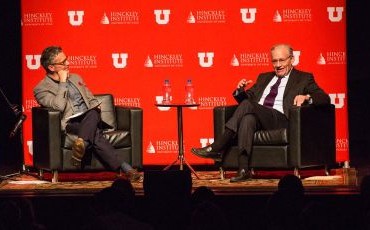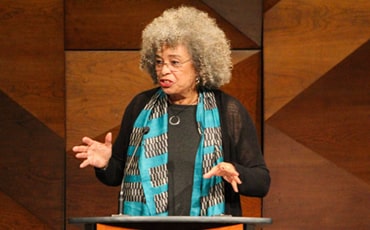Political Scientist, Foreign Affairs Columnist & NYT Bestselling Author; President & Founder of Eurasia Group & GZERO Media
Ian Bremmer Biography
Ian Bremmer is a political scientist who helps business leaders, policymakers, and the general public make sense of the world around them. Bremmer is president and founder of Eurasia Group, the leading geopolitical risk advisory firm, and GZERO Media, a digital media company providing intelligent and engaging news coverage of international affairs. He is an independent voice on critical issues around the globe, offering clear-headed insights through speeches, written commentary, and even satirical puppets (really!).
A prolific writer, Bremmer is the author of eleven books, including The New York Times bestsellers “Us vs. Them: The Failure of Globalism,” which examines the rise of populism across the world, and his latest book, “The Power of Crisis: How Three Threats—and Our Response—Will Change the World,” which covers a trio of looming global crises (health emergencies, climate change, and technological revolution) and their potential to create global prosperity and opportunity.
Bremmer is the foreign affairs columnist and editor at large for TIME magazine, and is the host of "GZERO World with Ian Bremmer," a global affairs program that airs weekly on U.S. public television. Uniquely positioned to bring unbiased analysis on complex geopolitical issues, Bremmer is a frequent guest on leading broadcast television, digital news, and podcasts— from CNN and MSNBC to FOX and Newsmax— as well as key international media. Bremmer also served as rapporteur of the UN High-Level Advisory Body on Artificial Intelligence.
Bremmer holds a master's degree and a doctorate in political science from Stanford University and a bachelor's degree in international relations from Tulane University. He currently teaches at Columbia University's School of International and Public Affairs and previously was a professor at New York University. He is also a Senior Fellow at Harvard Kennedy School's Belfer Center for Science and International Affairs.
Contact a speaker booking agent to check availability on Ian Bremmer and other top speakers and celebrities.
Ian Bremmer Speaking Topics
-
Navigating the Geopolitical Recession
For the past 15 years, the post-Cold War global order has been breaking down, leaving us to respond to a series of crises with both political, market, and business implications. Ian Bremmer explains that geopolitics has entered a bust cycle. The world’s most powerful country— the United States — has become the most politically dysfunctional rich-world country. The world's most important bilateral relationship — US-China —is deteriorating more quickly than leaders can build new guardrails. Today's global institutions no longer reflect the world's true balance of power. The result: a growing vacuum of leadership and cross-border coordination. This geopolitical recession will continue to limit our ability to respond to crises like the pandemic, the Russia-Ukraine war, climate change, and the emergence of disruptive new technologies.
Ian will share ideas and insights to help policymakers and business decision makers navigate a world in accelerating transition.
-
Managing Risk in an Unstable World
To navigate globalization, every business decision-maker weighs economic variables when considering overseas investments or market exposure. But to spot crucial opportunities and manage risk, they must also understand the political factors and trends changing our world in real-time. Whether it's increasingly contentious relations between China and the United States, the war in Ukraine, a more complex regulatory environment in Europe, a newly global focus from India, surges of populism in Latin America, heightened competition in Africa, or dozens of other politically driven trends, political analyst and entrepreneur Ian Bremmer will detail how political risk is creating new sets of business winners and losers.
At this presentation audiences will learn:
- How to spot political risk on the horizon and balance it against economic opportunities
- How to understand the opportunities, and dangers, of multilayered relations between Washington and Beijing
- How to identify the broader trends remaking tomorrow's global balance of power
- How to process the technological changes now transforming geopolitics
Ian Bremmer Videos

Ian Bremmer | 2025 Tulane School of Liberal Arts Commencement Speaker
Ian Bremmer returned to his alma mater to deliver the commencement address and receive the school’s Distinguished Alumni Award. Laying out the...

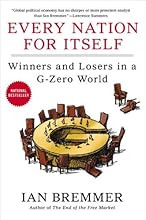
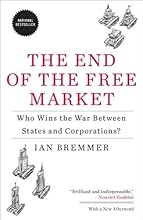





































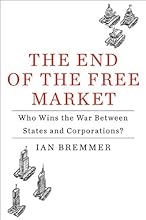
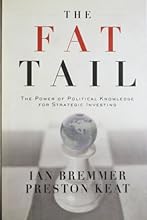
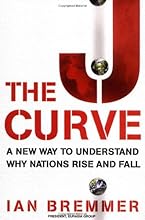
-
How do I book Ian Bremmer to speak at my event?
Our experienced booking agents have successfully helped clients around the world secure speakers like Ian Bremmer for speaking engagements, personal appearances, product endorsements, or corporate entertainment since 2002. Click the Check Availability button above and complete the form on this page to check availability for Ian Bremmer, or call our office at 1.800.698.2536 to discuss your upcoming event. One of our experienced agents will be happy to help you get speaking fee information and check availability for Ian Bremmer or any other speaker of your choice. -
What are the speaker fees for Ian Bremmer
Speaking fees for Ian Bremmer, or any other speakers and celebrities, are determined based on a number of factors and may change without notice. The estimated fees to book Ian Bremmer are available upon request for live events and available upon request for virtual events. For the most current speaking fee to hire Ian Bremmer, click the Check Availability button above and complete the form on this page, or call our office at 1.800.698.2536 to speak directly with an experienced booking agent. -
What topics does Ian Bremmer speak about?
Ian Bremmer is a keynote speaker and industry expert whose speaking topics include Author, Business, Business Coaching, Business Consulting, Business Leadership, College, Creativity, Economy, Energy, Entrepreneurship, Environment, Finance, Futurism, Geopolitics, Health & Wellness, Inspirational, Leadership, Political, Political Science, Public Health, Technology, TED, Virtual, World Affairs -
Where does Ian Bremmer travel from?
Ian Bremmer generally travels from New York, NY, USA, but can be booked for private corporate events, personal appearances, keynote speeches, or other performances. For more details, please contact an AAE Booking agent. -
Who is Ian Bremmer’s agent?
AAE Speakers Bureau has successfully booked keynote speakers like Ian Bremmer for clients worldwide since 2002. As a full-service speaker booking agency, we have access to virtually any speaker or celebrity in the world. Our agents are happy and able to submit an offer to the speaker or celebrity of your choice, letting you benefit from our reputation and long-standing relationships in the industry. Please click the Check Availability button above and complete the form on this page including the details of your event, or call our office at 1.800.698.2536, and one of our agents will assist you to book Ian Bremmer for your next private or corporate function. -
What is a full-service speaker booking agency?
AAE Speakers Bureau is a full-service speaker booking agency, meaning we can completely manage the speaker’s or celebrity’s engagement with your organization from the time of booking your speaker through the event’s completion. We provide all of the services you need to host Ian Bremmer or any other speaker of your choice, including offer negotiation, contractual assistance, accounting and billing, and event speaker travel and logistics services. When you book a speaker with us, we manage the process of hosting a speaker for you as an extension of your team. Our goal is to give our clients peace of mind and a best-in-class service experience when booking a speaker with us. -
Why is AAE Speakers Bureau different from other booking agencies?
If you’re looking for the best, unbiased speaker recommendations, paired with a top-notch customer service experience, you’re in the right place. At AAE Speakers Bureau, we exclusively represent the interests of our clients - professional organizations, companies, universities, and associations. We intentionally do not represent the speakers we feature or book. That is so we can present our clients with the broadest and best performing set of speaker options in the market today, and we can make these recommendations without any obligation to promote a specific speaker over another. This is why when our agents suggest a speaker for your event, you can be assured that they are of the highest quality with a history of proven success with our other clients.
Ian Bremmer is a keynote speaker and industry expert who speaks on a wide range of topics such as Navigating the Geopolitical Recession, Managing Risk in an Unstable World, The Geopolitics of Artificial Intelligence and The Power of Crisis. The estimated speaking fee range to book Ian Bremmer for your event is available upon request. Ian Bremmer generally travels from New York, NY, USA and can be booked for (private) corporate events, personal appearances, keynote speeches, or other performances. Similar motivational celebrity speakers are Peter Diamandis, Daymond John, Peter Zeihan, Scott Galloway and Marc Randolph. Contact All American Speakers for ratings, reviews, videos and information on scheduling Ian Bremmer for an upcoming live or virtual event.
This website is a resource for event professionals and strives to provide the most comprehensive catalog of thought leaders and industry experts to consider for speaking engagements. A listing or profile on this website does not imply an agency affiliation or endorsement by the talent.
All American Entertainment (AAE) exclusively represents the interests of talent buyers, and does not claim to be the agency or management for any speaker or artist on this site. AAE is a talent booking agency for paid events only. We do not handle requests for donation of time or media requests for interviews, and cannot provide celebrity contact information.
If you are the talent and wish to request a profile update or removal from our online directory, please submit a profile request form.



